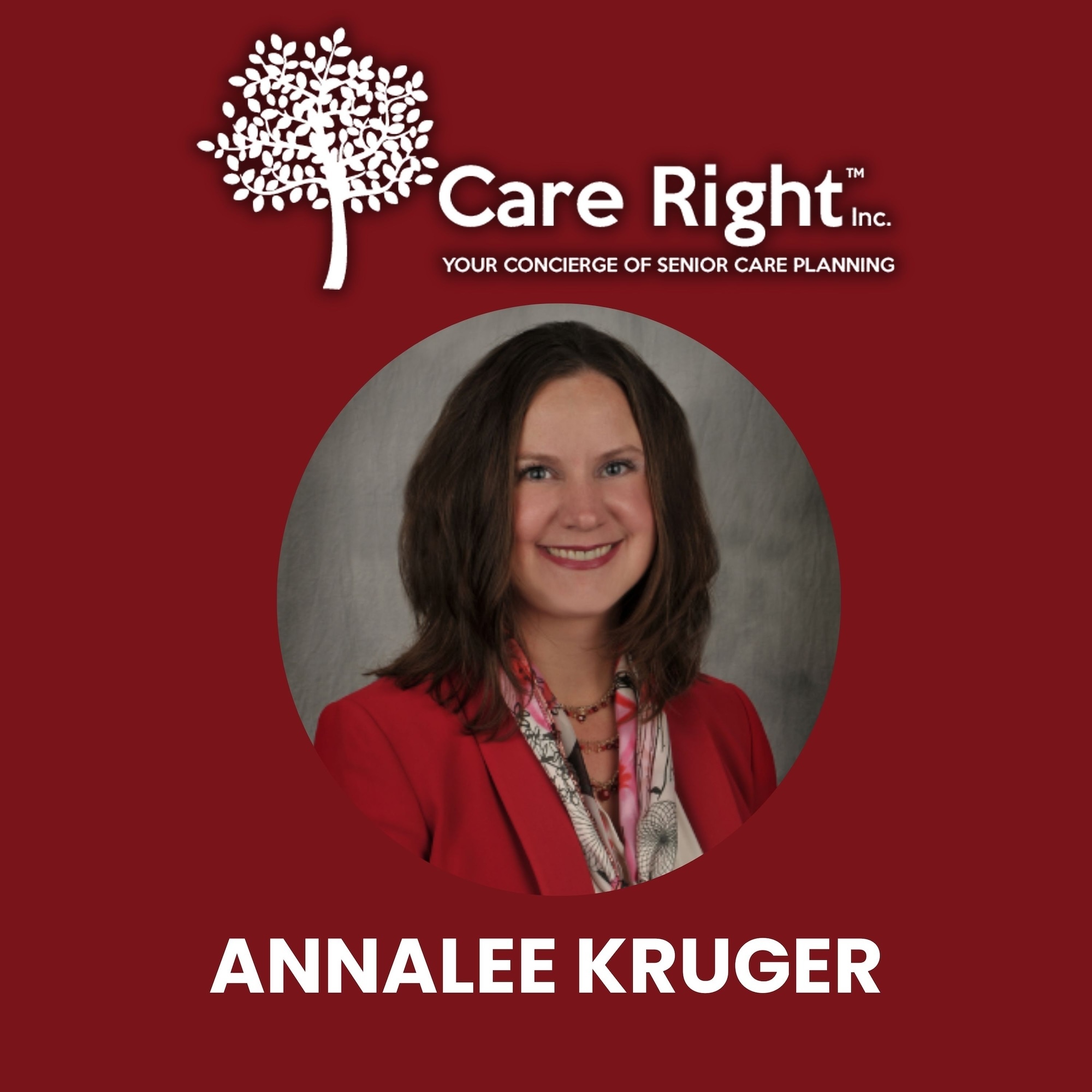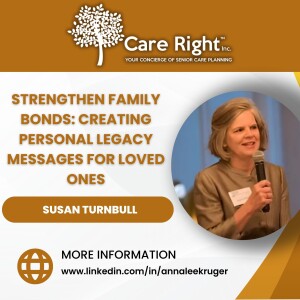
407
Downloads
90
Episodes
Family caregivers across the nation are finding themselves thrust into the role of caring for aging loved ones without ever having any family discussion about the ”what is” of aging. Families are not talking about care needs, caregiver burnout, the costs of care, dementia, other disease progressions, and they aren’t putting proactive plans in place. If you find yourself in this predicament, you need to listen to our ”Tired” podcast series
Episodes

Wednesday Jul 17, 2024
Wednesday Jul 17, 2024
Planning for the future and keeping family values and stories alive are important for strengthening the family bond. This isn't just about who gets what after someone passes away. These days, it's also about sharing personal feelings and experiences. One way to do this is through ethical wills. These are old, but they're becoming popular again. They're a great way to share life lessons, personal values, and feelings with the next generations. They're not about money or possessions, but about sharing personal wisdom and family stories.
Susan Turnbull is the founder of Personal Legacy Advisors. She helps people create ethical wills and develop their personal legacy through writing letters, recordings, and conversations. An ethical will allows one to pass on intangible aspects of their life like values, stories, feelings and reflections to loved ones. In this episode, Susan and Anna talk about creating ethical wills, preserving family stories, developing aging plans with care options, and strengthening family relationships through personal legacy messages.
Quotes:
- "An ethical will, especially a contemporary version of an ethical will, is really a letter of love."
- "To me, the relationships that you're trying to strengthen and nurture, and keep alive even after a person dies, along with the values you're trying to keep alive after a person dies, can come out in conversation and in their story."
- "I think people make the mistake of thinking they already know it. Somehow they've already absorbed those stories, or they're not that interested or they're not that interesting."
- "So I always say, let's start with something small, create something of a page or two, and then add to it as time and circumstances allow. Ethical wills are not long, 20 pages would be a long document." - Susan Turnbull
Takeaways:
- Begin legacy planning early by preserving family histories and memories through recorded conversations or even just a written page of what you want to pass on.
- Use conversation starters and prompts to foster meaningful family discussions and strengthen multigenerational relationships.
- Create a personal legacy or ethical will to encapsulate your values and reflections, thereby extending your influence beyond tangible assets.
- Adopt a layered approach to legacy preservation, incorporating letters, recordings, and transcripts to ensure the endurance of memories.
- Engage in family legacy projects, a practice that not only makes the process less daunting but also promotes shared experiences and understanding.
Conclusion:
By consciously focusing on transmitting wisdom and important values, individuals can leave a lasting and meaningful imprint that extends far beyond material possessions or physical achievements. This focus on passing down wisdom can create a sense of continuity and belonging, linking generations through shared knowledge and experiences. This unbroken chain forms part of our identity and heritage, linking us to our past and future and offering a foundation for future generations.
Resources:
Guest Links:

No comments yet. Be the first to say something!